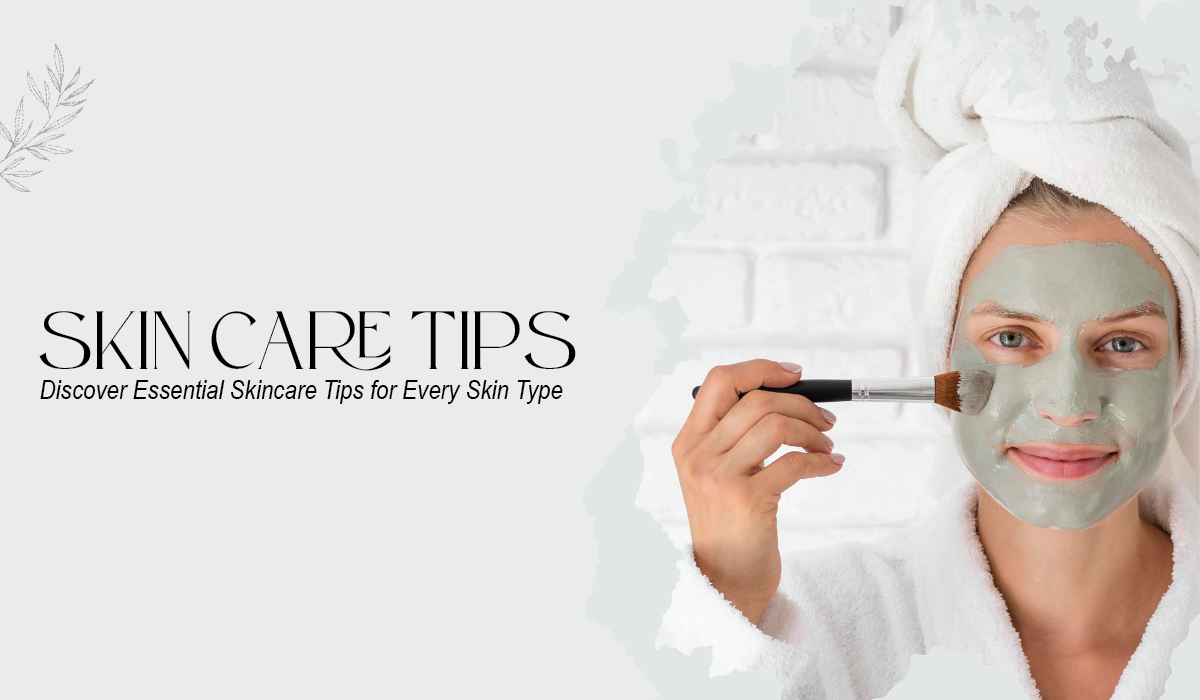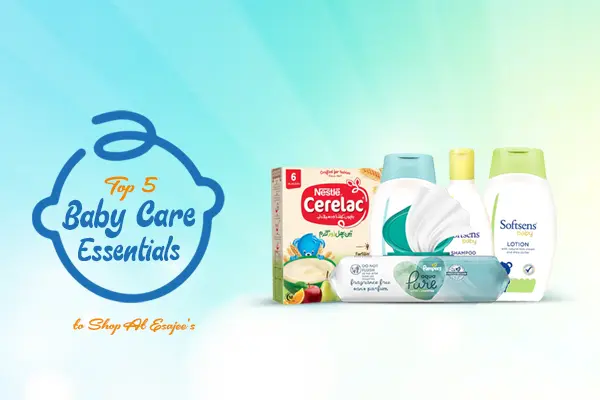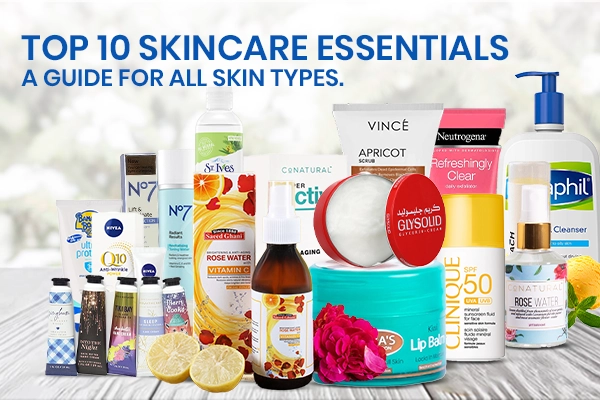
Discover Essential Skincare Tips for Every Skin Type
How confident are you in your current skincare routine? With the vast array of products and advice available, it can be challenging to determine what truly works for your unique skin type and environment. Yet, adapting your skincare practices to fit these personal factors is crucial for Supporting healthy, Radiant skin.
In this blog, we'll explore new perspectives and techniques that go beyond the usual Skincare Tips. Our goal is to empower you with knowledge and practical tips to enhance your routine, ensuring your skin gets exactly what it needs to flourish in any condition.
Core Components of Skincare
Cleansing: The foundation of any skincare tip is effective cleansing. Choosing the right cleanser for your skin type is essential to remove dirt, oil, and impurities without stripping the skin of its natural moisture. For instance, individuals with oily skin may benefit from foaming or gel-based cleansers that can help control excess sebum, while those with dry skin should consider cream or lotion-based cleansers that provide additional hydration. Ensuring you use the appropriate cleanser can prevent irritation and pave the way for healthier skin.
Moisturizing: Hydration is key to maintaining the skin’s elasticity and barrier function. Different skin types require different moisturizers to achieve optimal hydration. For example, lightweight, non-comedogenic moisturizers are ideal for oily skin to hydrate while preventing clogged pores. Conversely, dry skin may require heavier, oil-based creams that provide more intense moisture. Regular use of a suitable moisturizer helps keep the skin smooth, supple, and resistant to environmental stresses.
Protecting: One of the most critical steps in any skincare tip is protecting the skin from harmful UV rays. Daily use of sunscreen with at least SPF 30 can shield the skin from sun damage, prevent premature aging, and reduce the risk of skin cancer. It's important to apply sunscreen to all exposed areas and not just the face, and reapply every two hours when outdoors for prolonged periods. Additionally, wearing protective clothing and seeking shade during peak sun hours can further enhance your skin protection strategy.
Lifestyle Adjustments for Better Skin
Diet and Nutrition:
Your diet plays an important role in the health and appearance of your skin. Opt for a balanced diet rich in fruits, vegetables, lean proteins, and healthy fats. Foods high in antioxidants, such as berries and leafy greens, combat free radicals and promote youthful skin. Omega-3 fatty acids found in salmon and avocado help maintain skin elasticity and hydration. Stay hydrated by drinking plenty of water throughout the day to keep your skin plump and supple.
Exercise and Skin Health:
Regular exercise boosts blood circulation, delivering oxygen and nutrients to your skin cells while removing toxins. This increased circulation gives your skin a healthy, radiant glow. Sweating during exercise helps unclog pores and expel impurities, reducing the risk of breakouts. Incorporate a variety of exercises like cardio, strength training, and flexibility exercises for optimal skin benefits.
Sleep and Skin Regeneration:
Quality sleep is essential for skin regeneration and repair. During sleep, your body repairs damaged cells and produces collagen, which maintains skin firmness and elasticity. Lack of sleep can increase cortisol levels, leading to inflammation and accelerated skin aging. Aim for 7-9 hours of uninterrupted sleep each night to support your skin's natural regeneration process. Establish a relaxing bedtime routine and create a comfortable sleep environment for better skin health.
Products According to Skin Types
]Dry Skin
To help with dry skin, use a gentle cleanser that won't remove natural oils. Pick a moisturizer with ingredients like shea butter or hyaluronic acid to hydrate the skin. Try serums with glycerin or vitamin E to add moisture and protect your skin. You can also use natural oils like argan oil to soothe dry, flaky skin. Remember, avoid hot showers, as they can make dry skin worse. Use lukewarm water instead, and apply moisturizer right after bathing to keep your skin hydrated.
Oily Skin:
Combat oily skin with a gentle foaming cleanser to remove excess oil and unclog pores, followed by an oil-free moisturizer for hydration without shine. Use mattifying serums with niacinamide or salicylic acid to regulate oil production and minimize pores. Natural remedies like witch hazel or tea tree oil can help control oiliness. Avoid heavy, pore-clogging products and keep blotting papers handy to absorb excess oil without disturbing makeup.
Combination Skin:
Combination skin, with both oily T-zone and dry cheeks, requires a customized approach. Use a gentle gel cleanser to remove oil without over-drying. Opt for a lightweight moisturizer for dry areas and dual-action serums with hyaluronic acid for hydration and niacinamide for oil control. Try natural remedies like a clay mask for the T-zone and hydrating masks for dry areas. Customize your routine by using different products for each area, like a lighter moisturizer for oily spots and a richer one for dry patches.
Skincare Products and Tips
Cleanser: Choose a cleanser suited to your skin type and use it twice daily to remove dirt, oil, and makeup without stripping the skin.
Moisturizer: Apply moisturizer morning and night to hydrate and protect the skin. Opt for a formula that matches your skin type and concerns.
Serum: Incorporate serums targeted towards specific concerns such as hydration, brightening, or anti-aging. Apply serums after cleansing and before moisturizing for maximum absorption.
Sunscreen: Protect your skin from UV damage by wearing sunscreen daily, even on cloudy days. Choose a broad-spectrum sunscreen with SPF 30 or higher and reapply every two hours when outdoors.
Exfoliation: Use a gentle exfoliator once or twice a week to remove dead skin cells and promote cell turnover. Avoid over-exfoliating, which can lead to irritation and sensitivity.
Hydration: Drink plenty of water throughout the day to keep your skin hydrated from the inside out. Limit caffeine and alcohol consumption, as they can dehydrate the skin.
Healthy lifestyle: Maintain a balanced diet rich in fruits, vegetables, and lean proteins to nourish your skin from within. Get regular exercise to improve circulation and promote healthy skin. Prioritize sleep to allow your skin time to repair and regenerate overnight.
How Esajee Can Help You in Skin Care?
Looking for great skincare products after knowing Skincare tips? Check out Esajee! We've got a wide variety of items that can help with any skin issue, from dry skin to acne. At Esajee, you'll find only the best quality products that really work. Don't miss out—visit our website today to see our full selection and pick the perfect skincare products for you.
Frequently Asked Questions
What skincare products are best for sensitive skin?
Choose products labeled as "for sensitive skin" as these are formulated to be gentle and minimize irritation. Ingredients that soothe and calm the skin are ideal. It's important to do a patch test with new products to ensure they don't cause irritation before fully incorporating them into your routine.
Can I use acne treatment products if I have dry skin?
Yes, people with dry skin can still use acne treatment products. Opt for products that are formulated to be hydrating and gentle. It's important to balance acne-fighting treatments with nourishing moisturizers to ensure your skin stays hydrated.
Can I use the same skincare products year-round?
Your skin's needs can change with the seasons, so it might be necessary to adjust your skincare routine accordingly. In the winter, you might need richer, more moisturizing products to combat dryness, whereas in the summer, lighter formulas and increased sun protection might be more appropriate.






